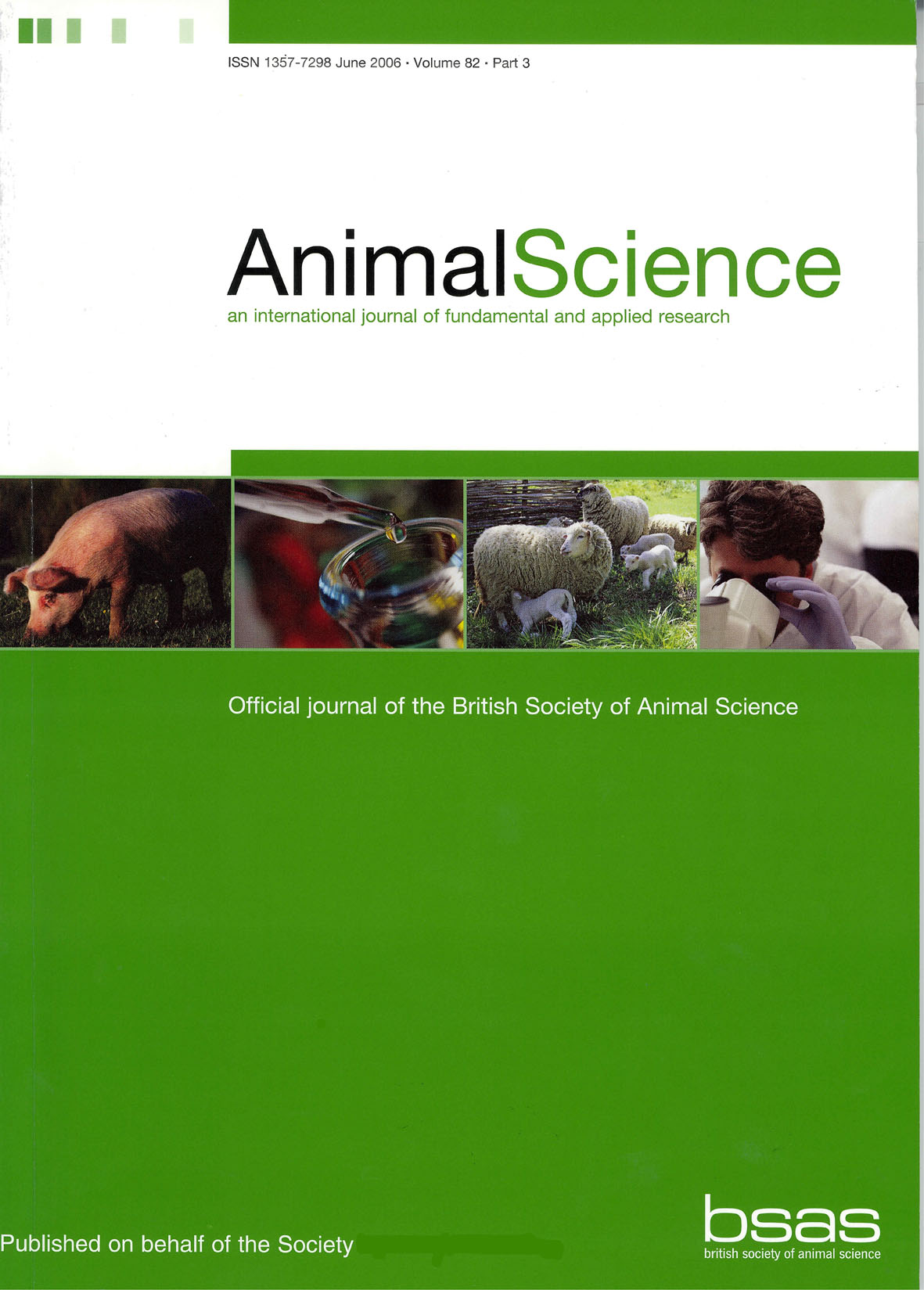Article contents
Daily changes in antro-duodenal myoelectric activity in weaned pigs
Published online by Cambridge University Press: 18 August 2016
Abstract
The stomach and small intestine manifest a myoelectric activity pattern called the migrating myoelectric complex (MMC), which is controlled by both environmental and intrinsic factors. The daily MMC pattern has been little investigated, therefore the purpose of the present study was to study it, in weaned pigs given food twice a day. A wireless telemetric recording system was used for 24-h electromyography of the antrum and duodenum. The activity of the antrum showed little change if any, whereas the myoelectric activity of the duodenum significantly changed with respect to the time of day and feeding in conscious pigs. Namely, there were more frequent and regular MMC cycles occurring in the duodenum at night as compared with that during daytime. This change was due to the shortening of phase II of the MMC cycles that were registered at night. Phase I of the MMC showed transient variability in relation to feeding with no impact on the day/night differences. Phase III of the duodenal MMC cycle as well as the ‘feeding pattern’ did not change along with the time of day and feeding regime. In conclusion, daily variation in the duodenum may provide different conditions for digestive processes in the day and night.
Keywords
Information
- Type
- Non-ruminant nutrition, behaviour and production
- Information
- Copyright
- Copyright © British Society of Animal Science 2003
References
- 3
- Cited by

